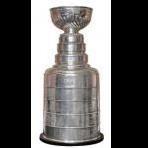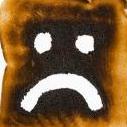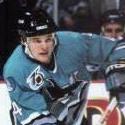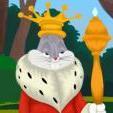-
Posts
1,865 -
Joined
-
Last visited
-
Days Won
8
Reputation Activity
-

-
 Renomitsu got a reaction from VHLSC in VHLSC Top 25 Players [S45]
Renomitsu got a reaction from VHLSC in VHLSC Top 25 Players [S45]
I actually quite like this method. Will be sending in later today =]
-

-

-
 Renomitsu got a reaction from Kel in Claimed:VHLM's Growing Pains - Europe Surging, Brampton Struggling [Final 6/6]
Renomitsu got a reaction from Kel in Claimed:VHLM's Growing Pains - Europe Surging, Brampton Struggling [Final 6/6]
VHLM’s Growing Pains – Europe Surging, Brampton Struggling
European Overlords
Just as many pundits predicted, Europe is having a renaissance season in the VHLM – the Storm, Red Wolves, and Royals are all tied for points at 16 (although Bern has one fewer game played), while the Watchmen struggle to remain relevant, 9 points behind. In inter-conference games, Europe has simply dominated the competition, racking up a 19W-9L-2OTL. And yeah, a 63.3% winning rate is pretty – but it’s the way Europe, particularly Bern, has surgically torn apart some of the North American teams that really impresses me.
North Americans do have some pretty good performances against the Europeans from time to time – take the Brampton 6, Bratislava 1 match or the Saskatoon 6, Bratislava 1 match from days 7 and 6, respectively – but it’s mostly the top two NA teams picking on the single rebuilding European team. What’s alarming for the Americans as a whole are complete and total blowouts like this Yukon 0, Bern 9 beauty of a shutout posted by the the Royals, with Zach Parechkin putting up a totally absurd seven goals in a single match; the Blades getting blanked by the Storm, 0-3; or even Saskatoon getting subjugated by Oslo, in which Wesley Babiy posted a hat trick. Now, it’s worth noting seven of Bern’s games are against the anemic Yukon Rush (44 of their 53 goals come from those seven games) – but they’ve also beaten the Red Wolves, had a very close loss gainst the Lynx, and lost to the Storm.
Anecdotal evidence isn’t the best way to prove a point, so let’s take some seasonal data from the minors. At the moment, the minors have three teams that have posted one-hundred points or more from goals and assists: the Royals, Red Wolves, and Wild, with the Storm just underneath the threshold at 94. Saskatoon, ostensibly the most competitive team in North America with Brampton just behind, has put up an impressive performance thus far, even going 3-3 against Europe’s three clear contenders. They’ve been able to compete very closely with the Wolves and match the Storm blow-for-blow (2-2) in spite of their lopsided matchup noted earlier. Brampton, on the other hand, is narrowly eking out wins against the Watchmen, with a 4-3 overtime win and a 5-3 victory on Day 2. When it comes to the other three teams, however, Brampton’s 0-2-1, and they’ve even taken a 2-1 overtime loss to Bratislava.
One simply needs to look at the rosters for most of these teams for a good indicator of their success this season: as covered in the two most recent VHLM Mags, the Europeans have superior player quality and quantity in most cases. Shots for and shots against are two metrics we can use to compare team competitiveness:
Together, our three European powerhouses have a +492 shot differential, even with the Storm have played over half of their games against the America-dominating Wild. In goals for, three of the top four teams are European (with – you guessed it – the Royals, Red Wolves, and Storm in the top four).
In spite of all of this scathing analysis, it’s necessary to provide some context as to why there’s such a disparity between the regions this season. The VHLM Pick Tracker shows that Ottawa, for example holds a huge number of draft picks: seven in the first two rounds of S46, and another three in the first two rounds of S47. Even Brampton, arguably a top-two team in North America, holds three firsts in this season’s Dispersal Draft, and Yukon owns three firsts in the S47 draft. The Red Wolves have thrown all of their bargaining chips into the ring this season, as they’ve only retained two draft picks… for the next two drafts. They’ve the depth and talent to make it deep this season, but the Red Wolves of near-future seasons will have to pay for it.
In short, Europe is dominating – but we haven’t seen some matchups play out all the way. As more teams play the Wild, Bern plays a few more games (particularly against their European competitors), and the Red Wolves and Storm get their punches in against some less powerful teams, we’ll start to see more relevant standings.
What’s up with the Blades?
The next topic that deserves some attention is Brampton’s struggles to this point in the season. Under new GM Kel, the Blades had just a couple of picks in the first two rounds, selecting defender Saul Hackett (121 TPE) and S45 prospect Maxime Deschamps (107 TPE) in the draft. With bright young faces like Chris Fekete (G, 11 TPE) and Zach Voss (D, 50 TPE) joining the roster in the past couple of weeks, it’s likely the Blades will have a mid-season resurgence if they can weather their early struggles.
The Blades just haven’t been performing statistically, however. As shown in the above graphic, they’re at a paltry +6 in shot differential this season – an alarming statistic for a team that may be competing for the North American title this season. With two solid defensemen bringing up their first line, they’re still in the bottom half of the league in Goals Against and last in Penalty Kill % at 2.73 GA and 71.88%, respectively. The only category they can claim the top half of the league in is PIM, at 8.00 minutes/game – and that’s not exactly something to write home about.
The Goals Against will settle down as the season progresses, with Fekete gradually gaining steam as he puts some practice time in and becomes better acquainted with the league. But it’s concerning that Brampton’s top two draft picks aren’t producing as they should; some small part of it can be attributed to not having support on their team, but Brampton isn’t hurting for players. They have a few solid forwards (e.g. Lee Sang-Hyeok and Jefferson Jackson), as well as a handful of defenders (Ken Anderson and Voss), among others. The question is, even if Fekete becomes a force to be reckoned with in goal, will Brampton’s skaters (defenders and forwards alike) be able to capitalize on it?
-
 Renomitsu got a reaction from DollarAndADream in GM 92: Saskatoon vs. Bern
Renomitsu got a reaction from DollarAndADream in GM 92: Saskatoon vs. Bern
A hat trick and five total points.
pls mercy parechkin
-

-
 Renomitsu reacted to Baozi in Season 45 Discussion (Welcome Hackett, Deschamps, Voss, and Ahai)
Renomitsu reacted to Baozi in Season 45 Discussion (Welcome Hackett, Deschamps, Voss, and Ahai)
Improve your strength and puckhandling u boob!
-
 Renomitsu reacted to gorlab in S45 Trivia Week 1 Answers + Claim List
Renomitsu reacted to gorlab in S45 Trivia Week 1 Answers + Claim List
fucking DEAD @ having to have read all of the articles to get the answer right ) ) )
-
 Renomitsu got a reaction from DollarAndADream in Fourth Consecutive Overtime Game Dulling the Blades?
Renomitsu got a reaction from DollarAndADream in Fourth Consecutive Overtime Game Dulling the Blades?
BRAMPTON, ON - After a grueling four-game series that ended with either a shootout or extra period, the Brampton Blades' roster has started to show the wear and tear of an overworked team. These four games - a shootout loss to Oslo, an overtime victory over Bratislava, a shootout victory over Yukon, and an overtime loss to Ottawa - are the definition of a trying series of games, and the Blades are fortunate to have gone 2-2 in these few days.
"That feeling of adrenaline drops a bit after so many long games," Brampton defenseman Saul Hackett noted, "I can't imagine how it must be for Chris [Fekete, goalie for the Blades]."
Indeed, while Hackett has a small amount of experience from last season to help him brave the trials of these lengthy mid-season games, greenhorn Chris Fekete is brand-new to the league. The Blades have struggled mightily in the past couple of weeks, with low goal production and a poor shot differential for their first several games of the season. The series of overtime games even came after an emotional 5-3 win over European powerhouse Bern, who now showcase the efforts of a deep and extremely talented set of forwards.
In time, the Blades will recover from this set of games - but until their next few rest days, their regular season performance is at risk.
-
 Renomitsu got a reaction from DollarAndADream in GM 60: Saskatoon vs. Bern
Renomitsu got a reaction from DollarAndADream in GM 60: Saskatoon vs. Bern
Maverick and Parechkin putting in WORK on offense. Looking forward to more match ups between these two powerhouses.
-
 Renomitsu reacted to ChrisF in PT Staff - Media Reviewer [Position Available]
Renomitsu reacted to ChrisF in PT Staff - Media Reviewer [Position Available]
I'd be interested because it sounds like something that would be fun to do, plus, it helps me build my rep in this league. As far as being active goes, my work speaks for itself so far and I've only been here since Sept 11th.
-
 Renomitsu reacted to DollarAndADream in PT Staff - Media Reviewer [Position Available]
Renomitsu reacted to DollarAndADream in PT Staff - Media Reviewer [Position Available]
I'm going through and awarding ChrisF with this position. I think the league would do well with a newer, active member as a grader. He has shown promise early on in this league and I think he will do superb.
Thanks to everyone for applying, and there could be another opening soon anyways, so one of you others may get it as well.
-
 Renomitsu got a reaction from DollarAndADream in PT Staff - Media Reviewer [Position Available]
Renomitsu got a reaction from DollarAndADream in PT Staff - Media Reviewer [Position Available]
Can I do VHLM Mag & Grader? :C
I just like to read and write the things.
-
 Renomitsu reacted to ChrisF in Season 45 Discussion (Welcome Hackett, Deschamps, Voss, and Ahai)
Renomitsu reacted to ChrisF in Season 45 Discussion (Welcome Hackett, Deschamps, Voss, and Ahai)
We beat Bern!!
-
 Renomitsu got a reaction from eaglesfan036 in Claimed:VHLM's Growing Pains - Europe Surging, Brampton Struggling [Final 6/6]
Renomitsu got a reaction from eaglesfan036 in Claimed:VHLM's Growing Pains - Europe Surging, Brampton Struggling [Final 6/6]
VHLM’s Growing Pains – Europe Surging, Brampton Struggling
European Overlords
Just as many pundits predicted, Europe is having a renaissance season in the VHLM – the Storm, Red Wolves, and Royals are all tied for points at 16 (although Bern has one fewer game played), while the Watchmen struggle to remain relevant, 9 points behind. In inter-conference games, Europe has simply dominated the competition, racking up a 19W-9L-2OTL. And yeah, a 63.3% winning rate is pretty – but it’s the way Europe, particularly Bern, has surgically torn apart some of the North American teams that really impresses me.
North Americans do have some pretty good performances against the Europeans from time to time – take the Brampton 6, Bratislava 1 match or the Saskatoon 6, Bratislava 1 match from days 7 and 6, respectively – but it’s mostly the top two NA teams picking on the single rebuilding European team. What’s alarming for the Americans as a whole are complete and total blowouts like this Yukon 0, Bern 9 beauty of a shutout posted by the the Royals, with Zach Parechkin putting up a totally absurd seven goals in a single match; the Blades getting blanked by the Storm, 0-3; or even Saskatoon getting subjugated by Oslo, in which Wesley Babiy posted a hat trick. Now, it’s worth noting seven of Bern’s games are against the anemic Yukon Rush (44 of their 53 goals come from those seven games) – but they’ve also beaten the Red Wolves, had a very close loss gainst the Lynx, and lost to the Storm.
Anecdotal evidence isn’t the best way to prove a point, so let’s take some seasonal data from the minors. At the moment, the minors have three teams that have posted one-hundred points or more from goals and assists: the Royals, Red Wolves, and Wild, with the Storm just underneath the threshold at 94. Saskatoon, ostensibly the most competitive team in North America with Brampton just behind, has put up an impressive performance thus far, even going 3-3 against Europe’s three clear contenders. They’ve been able to compete very closely with the Wolves and match the Storm blow-for-blow (2-2) in spite of their lopsided matchup noted earlier. Brampton, on the other hand, is narrowly eking out wins against the Watchmen, with a 4-3 overtime win and a 5-3 victory on Day 2. When it comes to the other three teams, however, Brampton’s 0-2-1, and they’ve even taken a 2-1 overtime loss to Bratislava.
One simply needs to look at the rosters for most of these teams for a good indicator of their success this season: as covered in the two most recent VHLM Mags, the Europeans have superior player quality and quantity in most cases. Shots for and shots against are two metrics we can use to compare team competitiveness:
Together, our three European powerhouses have a +492 shot differential, even with the Storm have played over half of their games against the America-dominating Wild. In goals for, three of the top four teams are European (with – you guessed it – the Royals, Red Wolves, and Storm in the top four).
In spite of all of this scathing analysis, it’s necessary to provide some context as to why there’s such a disparity between the regions this season. The VHLM Pick Tracker shows that Ottawa, for example holds a huge number of draft picks: seven in the first two rounds of S46, and another three in the first two rounds of S47. Even Brampton, arguably a top-two team in North America, holds three firsts in this season’s Dispersal Draft, and Yukon owns three firsts in the S47 draft. The Red Wolves have thrown all of their bargaining chips into the ring this season, as they’ve only retained two draft picks… for the next two drafts. They’ve the depth and talent to make it deep this season, but the Red Wolves of near-future seasons will have to pay for it.
In short, Europe is dominating – but we haven’t seen some matchups play out all the way. As more teams play the Wild, Bern plays a few more games (particularly against their European competitors), and the Red Wolves and Storm get their punches in against some less powerful teams, we’ll start to see more relevant standings.
What’s up with the Blades?
The next topic that deserves some attention is Brampton’s struggles to this point in the season. Under new GM Kel, the Blades had just a couple of picks in the first two rounds, selecting defender Saul Hackett (121 TPE) and S45 prospect Maxime Deschamps (107 TPE) in the draft. With bright young faces like Chris Fekete (G, 11 TPE) and Zach Voss (D, 50 TPE) joining the roster in the past couple of weeks, it’s likely the Blades will have a mid-season resurgence if they can weather their early struggles.
The Blades just haven’t been performing statistically, however. As shown in the above graphic, they’re at a paltry +6 in shot differential this season – an alarming statistic for a team that may be competing for the North American title this season. With two solid defensemen bringing up their first line, they’re still in the bottom half of the league in Goals Against and last in Penalty Kill % at 2.73 GA and 71.88%, respectively. The only category they can claim the top half of the league in is PIM, at 8.00 minutes/game – and that’s not exactly something to write home about.
The Goals Against will settle down as the season progresses, with Fekete gradually gaining steam as he puts some practice time in and becomes better acquainted with the league. But it’s concerning that Brampton’s top two draft picks aren’t producing as they should; some small part of it can be attributed to not having support on their team, but Brampton isn’t hurting for players. They have a few solid forwards (e.g. Lee Sang-Hyeok and Jefferson Jackson), as well as a handful of defenders (Ken Anderson and Voss), among others. The question is, even if Fekete becomes a force to be reckoned with in goal, will Brampton’s skaters (defenders and forwards alike) be able to capitalize on it?
-
 Renomitsu got a reaction from Toast in PT Staff - Media Reviewer [Position Available]
Renomitsu got a reaction from Toast in PT Staff - Media Reviewer [Position Available]
Can I do VHLM Mag & Grader? :C
I just like to read and write the things.
-
 Renomitsu got a reaction from TheLastOlympian07 in Claimed:VHLM's Growing Pains - Europe Surging, Brampton Struggling [Final 6/6]
Renomitsu got a reaction from TheLastOlympian07 in Claimed:VHLM's Growing Pains - Europe Surging, Brampton Struggling [Final 6/6]
Glad to see you enjoyed the article! =]
I'm hoping to highlight the league as a whole & give some insight into a specific team every week, if possible.
-

-
 Renomitsu reacted to Phil in OneX #20 - Hackett
Renomitsu reacted to Phil in OneX #20 - Hackett
Episode #20
Featured Player: Saul Hackett
Member Name: Renomitsu
Run Time: 12 minutes
Previous Episodes:
#19
#18 #17 #16 #15 #14 #13 #12 #11 #10 #9 #8 #7 #6 #5 #4 #3 #2 #1 -
 Renomitsu got a reaction from Toast in Claimed:Motivation - Saul Hackett [Final 10/10]
Renomitsu got a reaction from Toast in Claimed:Motivation - Saul Hackett [Final 10/10]
Motivation - Saul Hackett
“Oh, c’mon, Saul!”
“What, I showed you I can do it, right?”
“Yeah, but do you understand it?”
“What’s that supposed to mean?”
“Saul, if you can’t teach it, you don’t understand it.”
Every time he gathers up his equipment, Saul thinks back to one of the fondest memories he had of his older sister – one where he, the child he was, fought her wisdom. She was arrogant, or so he had once believed; who vested her with the authority to indisputably discern what he understood, after all? Her age – sixteen at the time – gave her barely any more life experience than he had at fourteen. Saul fought her influence tooth-and-nail, the rebellious teenager stereotype burning strong within him.
And yet it took until her untimely death for him to realize how right she was.
Identity
Saul’s tale is invariably a two-person story.
Henrik and Kaarin Hackett brought baby Saul into the world in Port McNeill, BC – a diminutive town of no more than three thousand. Just two years before, they gave birth to Adrienne, a beautiful girl with a spark of genius and a penchant for hockey that would make themselves apparent before she reached five years of age. Saul was obstinate, especially as a child – he learned how to use the word “no” in his infancy, and was defiant of his well-intentioned parents’ requests earlier than most – and passion was his governing quality.
Saul did what you might expect from a normal child – wearing his parents down by running around the house, crying profusely when his own stubbornness led to the tiniest of scratches, staying away from girls because of their “cooties” – right down to the antagonistic relationship he had with his sister. As the younger brother of a brilliant young athlete, Saul always felt as though he was being compared to Adrienne; his grades in language arts could have been “almost as good” as hers, or his performance in math “needing work” to reach the level of his sister. At first, he worked relentlessly to eventually edge his older sibling out in something, anything, but he realized soon enough that it was of little use. She was more insightful, clever, agile, empathetic – to put it simply, she was better than him. As a result, he tried to do things that would differentiate himself from her; he picked up American football in a tiny regional league, opting to use his physicality and size in addition to his wits and instinct to prove his worth.
This tided him over temporarily; in high school, however, he realized that his passion was gone. He played American football out of spite for his parents’ adoration for his sister; he performed passably in school so he wouldn’t be compared as frequently to his sister; he picked up hockey early on, but dropped it because he didn’t want another reason to be compared to his sister. In trying to branch out to an activity that would finally end all of the comparisons, he lost his defining trait, and therefore became the same as virtually everyone else. Perhaps he didn’t have a spark of genius; perhaps he didn’t have the talent for hockey intrinsic to his sister; but, at the same time, maybe he didn’t have to give up everything that made Saul himself.
Growing Up
Adrienne Hackett had made a name for herself in multiple ways: she maintained a 3.9 GPA, took a number of International Baccalaureate courses, and was a star forward on the high school hockey team, impressing with both her puck management and scoring abilities while averaging well over three points per game. She drew the attention of a number of professional hockey organizations, but intended to attend university, prioritizing her “education, and therefore her future” instead of wild dreams of playing professional hockey – this didn’t stop the press and scouts from investigating young Adrienne, however.
At this time, Saul was trying to piece together exactly what motivated him. He performed passably as part of the basketball and hockey teams, but felt as though they were essentially guesses at what could intrinsically push him forward. His performance was a reflection of his personal investment – he averaged 10 points, 3 assists, and 8 rebounds on the basketball team, and leveraged his physical stature to become a passable defenseman on the hockey team. Academically, he made a rapid ascent in his first year of high school, taking after his sister instead of pushing her away. Spurred on partially by his lackluster performance in years six through eight and significantly by his sister’s concerns for her own future, he realized that even if he hadn’t found what fundamentally motivated him, he should at least set a solid foundation for whatever it is he would do.
Saul came to respect his sister, in the same way so many others had. Improving (or really, establishing) a relationship with Adrienne had a rocky beginning, with Saul initially failing to understand her thought processes and feeling that what she did was excessive and unnecessary. Why should he have to be able to teach someone else in order to show that he himself understood a concept, after all? Certainly, being able to solve problems about simple Mendelian genetics was enough to get an A in one quarter of biology; it didn’t take a robust proof to show how alternate interior angles had the same measurement. Initially, his frustrations were outwardly apparent, and his sister simply dismissed them as “part of growing up” – a fact Saul now acknowledges as correct. He was passionate, occasionally hot-headed, direct, and reactive – she was calculated, organized, and precise. Saul began to see that his and his sister’s “styles” of learning weren’t irreconcilable: instead, they were complementary, working synergistically instead of antagonistically.
And disaster struck.
Understanding
Adrienne was comfortable in her senior year, with full knowledge that she would be attending McGill University on a full scholarship, intending to play hockey as a walk-on instead of on an athletic scholarship. She passed away just weeks before her eighteenth birthday, the victim of a seemingly non-fatal car accident paired with an un-diagnosed nervous system condition. The community rallied around the Hacketts, providing their sincerest sympathies; but the fact of the matter was that Adrienne was dead, and nothing was bringing her back – not even a painstaking, hours-long, but ultimately fruitless emergency procedure to restore her consciousness.
Saul was overcome with grief at the news of her death. More than a decade and a half into his life, he had finally matured and did not simply acknowledge, but appreciated the qualities differentiating him from his sister – and she would never know it. He loved her patience, her unwavering idealism in the face of his anger and frustration, even if this generosity was the cause of his annoyance in their formative years. Even though he previously despised her for her apparent perfection in sports and academics, he had taken her teachings to heart – and he felt as though he had developed psychologically more under her tutelage than with anyone else.
He knew that depression was the last thing that she would want him to fall prey to following her death; and Saul recovered, becoming stronger instead of crumpling under the stress. Assuming the mantle of his sister, Saul pursued academics and performed on the hockey team with a seemingly eternal flame – but with his own flair. His methods were often brash, but resourceful; his play on the ice physical, but adaptive and more refined. When he graduated, he committed to the University of Alberta and attended on a full athletic scholarship, earning a spot as top-four defenseman as soon as he stepped on the campus rink. In time, he would earn a CIS National Championship with the Golden Bears, and frequently made sports news with both technically-sound and exceptionally physical hits on opposing forwards.
The young defenseman’s tenacity and passion were palpable – but more importantly, he served as a mentor and leader to the university’s younger defenders in his third year of college. Saul’s devotion knew no bounds – he knew he had to carry the burdens of his sister in addition to his own, and as a result, had groomed the following generation of Golden Bears for future success. After that year, however, he finished his degree – an honors degree in biological education – and declared for the VHLM.
A rare, but recent press conference asked of Hackett: “What motivates you?”
He responded as follows:
“Whenever I go home, I ask myself: ‘Have I done everything I can? Did I leave everything I had out on the ice?’
I struggled for the longest time to find something – anything – that would motivate me. People would tell me, ‘if you love what you do, you’ll never work a day in your life,’ and so I fought desperately to find what that was – but I never could.
I buy into the idea that if you love what you do, you work all day, every day, harder than anyone ever has, because nothing can take that motivation, that drive, away from you. You can never expect doing what you love to be convenient or simple – hell, you might hate yourself at times – because you want to be the best, and even being good is never simple.
When it comes to what you love, just being ‘good enough’ will never be ‘good enough.’ If you ever want to be worth a damn – to your family, to your friends, to those looking up to you – you have to be able to look in the mirror and be proud of who’s staring back.”
-
 Renomitsu got a reaction from DollarAndADream in Claimed:Motivation - Saul Hackett [Final 10/10]
Renomitsu got a reaction from DollarAndADream in Claimed:Motivation - Saul Hackett [Final 10/10]
Motivation - Saul Hackett
“Oh, c’mon, Saul!”
“What, I showed you I can do it, right?”
“Yeah, but do you understand it?”
“What’s that supposed to mean?”
“Saul, if you can’t teach it, you don’t understand it.”
Every time he gathers up his equipment, Saul thinks back to one of the fondest memories he had of his older sister – one where he, the child he was, fought her wisdom. She was arrogant, or so he had once believed; who vested her with the authority to indisputably discern what he understood, after all? Her age – sixteen at the time – gave her barely any more life experience than he had at fourteen. Saul fought her influence tooth-and-nail, the rebellious teenager stereotype burning strong within him.
And yet it took until her untimely death for him to realize how right she was.
Identity
Saul’s tale is invariably a two-person story.
Henrik and Kaarin Hackett brought baby Saul into the world in Port McNeill, BC – a diminutive town of no more than three thousand. Just two years before, they gave birth to Adrienne, a beautiful girl with a spark of genius and a penchant for hockey that would make themselves apparent before she reached five years of age. Saul was obstinate, especially as a child – he learned how to use the word “no” in his infancy, and was defiant of his well-intentioned parents’ requests earlier than most – and passion was his governing quality.
Saul did what you might expect from a normal child – wearing his parents down by running around the house, crying profusely when his own stubbornness led to the tiniest of scratches, staying away from girls because of their “cooties” – right down to the antagonistic relationship he had with his sister. As the younger brother of a brilliant young athlete, Saul always felt as though he was being compared to Adrienne; his grades in language arts could have been “almost as good” as hers, or his performance in math “needing work” to reach the level of his sister. At first, he worked relentlessly to eventually edge his older sibling out in something, anything, but he realized soon enough that it was of little use. She was more insightful, clever, agile, empathetic – to put it simply, she was better than him. As a result, he tried to do things that would differentiate himself from her; he picked up American football in a tiny regional league, opting to use his physicality and size in addition to his wits and instinct to prove his worth.
This tided him over temporarily; in high school, however, he realized that his passion was gone. He played American football out of spite for his parents’ adoration for his sister; he performed passably in school so he wouldn’t be compared as frequently to his sister; he picked up hockey early on, but dropped it because he didn’t want another reason to be compared to his sister. In trying to branch out to an activity that would finally end all of the comparisons, he lost his defining trait, and therefore became the same as virtually everyone else. Perhaps he didn’t have a spark of genius; perhaps he didn’t have the talent for hockey intrinsic to his sister; but, at the same time, maybe he didn’t have to give up everything that made Saul himself.
Growing Up
Adrienne Hackett had made a name for herself in multiple ways: she maintained a 3.9 GPA, took a number of International Baccalaureate courses, and was a star forward on the high school hockey team, impressing with both her puck management and scoring abilities while averaging well over three points per game. She drew the attention of a number of professional hockey organizations, but intended to attend university, prioritizing her “education, and therefore her future” instead of wild dreams of playing professional hockey – this didn’t stop the press and scouts from investigating young Adrienne, however.
At this time, Saul was trying to piece together exactly what motivated him. He performed passably as part of the basketball and hockey teams, but felt as though they were essentially guesses at what could intrinsically push him forward. His performance was a reflection of his personal investment – he averaged 10 points, 3 assists, and 8 rebounds on the basketball team, and leveraged his physical stature to become a passable defenseman on the hockey team. Academically, he made a rapid ascent in his first year of high school, taking after his sister instead of pushing her away. Spurred on partially by his lackluster performance in years six through eight and significantly by his sister’s concerns for her own future, he realized that even if he hadn’t found what fundamentally motivated him, he should at least set a solid foundation for whatever it is he would do.
Saul came to respect his sister, in the same way so many others had. Improving (or really, establishing) a relationship with Adrienne had a rocky beginning, with Saul initially failing to understand her thought processes and feeling that what she did was excessive and unnecessary. Why should he have to be able to teach someone else in order to show that he himself understood a concept, after all? Certainly, being able to solve problems about simple Mendelian genetics was enough to get an A in one quarter of biology; it didn’t take a robust proof to show how alternate interior angles had the same measurement. Initially, his frustrations were outwardly apparent, and his sister simply dismissed them as “part of growing up” – a fact Saul now acknowledges as correct. He was passionate, occasionally hot-headed, direct, and reactive – she was calculated, organized, and precise. Saul began to see that his and his sister’s “styles” of learning weren’t irreconcilable: instead, they were complementary, working synergistically instead of antagonistically.
And disaster struck.
Understanding
Adrienne was comfortable in her senior year, with full knowledge that she would be attending McGill University on a full scholarship, intending to play hockey as a walk-on instead of on an athletic scholarship. She passed away just weeks before her eighteenth birthday, the victim of a seemingly non-fatal car accident paired with an un-diagnosed nervous system condition. The community rallied around the Hacketts, providing their sincerest sympathies; but the fact of the matter was that Adrienne was dead, and nothing was bringing her back – not even a painstaking, hours-long, but ultimately fruitless emergency procedure to restore her consciousness.
Saul was overcome with grief at the news of her death. More than a decade and a half into his life, he had finally matured and did not simply acknowledge, but appreciated the qualities differentiating him from his sister – and she would never know it. He loved her patience, her unwavering idealism in the face of his anger and frustration, even if this generosity was the cause of his annoyance in their formative years. Even though he previously despised her for her apparent perfection in sports and academics, he had taken her teachings to heart – and he felt as though he had developed psychologically more under her tutelage than with anyone else.
He knew that depression was the last thing that she would want him to fall prey to following her death; and Saul recovered, becoming stronger instead of crumpling under the stress. Assuming the mantle of his sister, Saul pursued academics and performed on the hockey team with a seemingly eternal flame – but with his own flair. His methods were often brash, but resourceful; his play on the ice physical, but adaptive and more refined. When he graduated, he committed to the University of Alberta and attended on a full athletic scholarship, earning a spot as top-four defenseman as soon as he stepped on the campus rink. In time, he would earn a CIS National Championship with the Golden Bears, and frequently made sports news with both technically-sound and exceptionally physical hits on opposing forwards.
The young defenseman’s tenacity and passion were palpable – but more importantly, he served as a mentor and leader to the university’s younger defenders in his third year of college. Saul’s devotion knew no bounds – he knew he had to carry the burdens of his sister in addition to his own, and as a result, had groomed the following generation of Golden Bears for future success. After that year, however, he finished his degree – an honors degree in biological education – and declared for the VHLM.
A rare, but recent press conference asked of Hackett: “What motivates you?”
He responded as follows:
“Whenever I go home, I ask myself: ‘Have I done everything I can? Did I leave everything I had out on the ice?’
I struggled for the longest time to find something – anything – that would motivate me. People would tell me, ‘if you love what you do, you’ll never work a day in your life,’ and so I fought desperately to find what that was – but I never could.
I buy into the idea that if you love what you do, you work all day, every day, harder than anyone ever has, because nothing can take that motivation, that drive, away from you. You can never expect doing what you love to be convenient or simple – hell, you might hate yourself at times – because you want to be the best, and even being good is never simple.
When it comes to what you love, just being ‘good enough’ will never be ‘good enough.’ If you ever want to be worth a damn – to your family, to your friends, to those looking up to you – you have to be able to look in the mirror and be proud of who’s staring back.”
-
 Renomitsu reacted to Baozi in Season 45 Discussion (Welcome Hackett, Deschamps, Voss, and Ahai)
Renomitsu reacted to Baozi in Season 45 Discussion (Welcome Hackett, Deschamps, Voss, and Ahai)
So what you are saying is that the common denominator behind these problems is the head grader........
-
 Renomitsu reacted to diamond_ace in Edition 97
Renomitsu reacted to diamond_ace in Edition 97
Guess Who's Back
(recapping how Oslo will be a contender again in a league which usually has single season contenders)
-
 Renomitsu got a reaction from boubabi in Edition 97
Renomitsu got a reaction from boubabi in Edition 97
Settling In After the S45 Dispersal Draft - North America
.png.ed69a7260a477fcf4feead7a0e4b7506.png)









